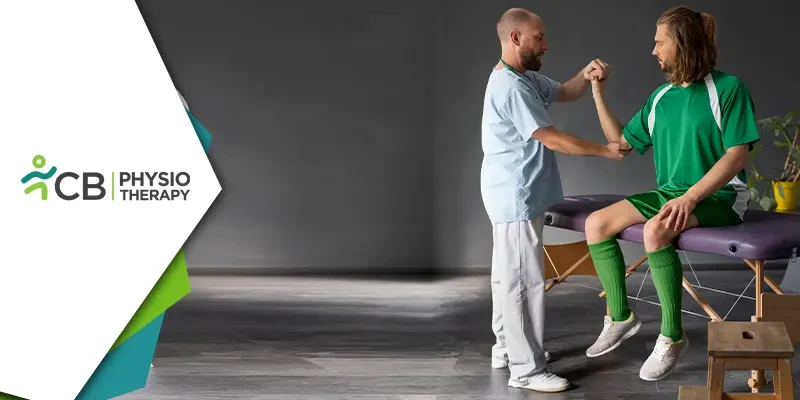In the realm of sports, athletes constantly seek ways to improve their performance, pushing the boundaries of their physical capabilities. One often overlooked aspect of athletic training is the optimization of bilateral limb usage – the coordinated use of both limbs to achieve maximum efficiency and power. Physiotherapists play a crucial role in helping athletes harness the potential of their bilateral movement patterns, leading to enhanced performance and reduced risk of injury.
Bilateral limb usage refers to the synchronized movement of both limbs in performing athletic activities. While many sports predominantly involve unilateral movements, such as running or kicking with one leg, optimizing bilateral coordination can significantly impact an athlete's overall performance. Whether it's in sports like basketball, soccer, or tennis, where athletes must rapidly change direction and utilize both limbs for agility and power, or in activities like weightlifting, where symmetrical strength distribution is vital, mastering bilateral limb usage is essential for athletic success.
Physiotherapists are uniquely positioned to assist athletes in developing and refining their bilateral movement patterns. Through a combination of specialized knowledge, hands-on techniques, and tailored exercise programs, physiotherapists can address biomechanical imbalances, enhance neuromuscular control, and optimize functional movement patterns.
Let's explore some ways in which Physiotherapists contribute to the Training of Athletes in utilizing both Limbs effectively:
1: Biomechanical Assessment: Physiotherapists conduct comprehensive assessments to identify any asymmetries or dysfunctions in an athlete's movement patterns. Using tools such as motion analysis and manual palpation, they pinpoint areas of weakness, tightness, or instability that may affect bilateral limb usage.2: Individualized Exercise Programs: Based on the findings of the assessment, physiotherapists design personalized exercise programs to address specific needs and goals. These programs may include strength training, flexibility exercises, balance drills, and proprioceptive training aimed at improving bilateral coordination and symmetry.
3: Neuromuscular Training: Physiotherapists employ various neuromuscular training techniques to enhance the communication between the brain and muscles, promoting smoother and more synchronized movement patterns. This may involve exercises focusing on proprioception, coordination, and motor control to optimize bilateral limb function.
4: Manual Therapy: Hands-on techniques such as joint mobilization, soft tissue mobilization, and myofascial release can help alleviate restrictions and improve mobility, allowing athletes to move more freely and efficiently with both limbs.
5: Functional Movement Training: Physiotherapists incorporate functional movement training into the athlete's regimen, simulating sport-specific scenarios that require coordinated bilateral limb usage. By practicing these movements under the guidance of a physiotherapist, athletes can refine their technique and improve their performance on the field or court.
6: Injury Prevention: In addition to enhancing performance, physiotherapists play a crucial role in injury prevention. By addressing underlying biomechanical issues and optimizing bilateral limb usage, they help reduce the risk of overuse injuries, muscle imbalances, and asymmetrical movement patterns that may lead to injury.
7: Rehabilitation: In the event of an injury, physiotherapists guide athletes through the rehabilitation process, focusing not only on restoring strength and mobility but also on retraining bilateral movement patterns to ensure a smooth return to sport.
8: Education and Feedback: Perhaps most importantly, physiotherapists educate athletes about the importance of bilateral limb usage and provide feedback and guidance to help them integrate these principles into their training and competition routines effectively.
By working closely with physiotherapists, athletes can unlock their full potential by harnessing the power of bilateral limb usage. Whether they're sprinting down the track, making a decisive cut on the soccer field, or executing a flawless backhand on the tennis court, athletes who master the art of bilateral coordination stand poised for success. With the expertise of physiotherapists guiding them every step of the way, athletes can elevate their performance, minimize the risk of injury, and reach new heights in their sporting endeavors.
We trust this blog has been beneficial for you. If you're an athlete or sports enthusiast seeking to elevate your performance with optimal bilateral limb usage, reach out to us. For a free assessment, connect with us. Let's unlock your peak potential.

